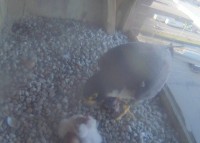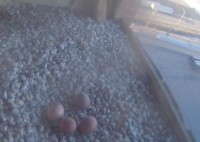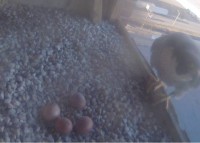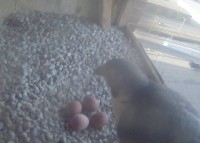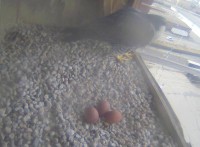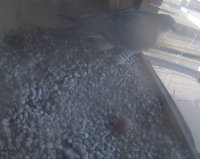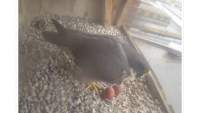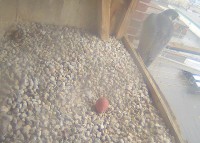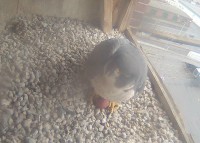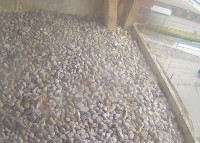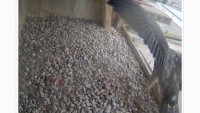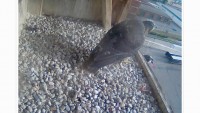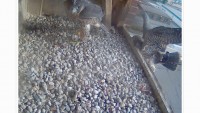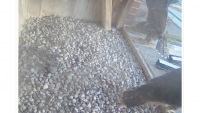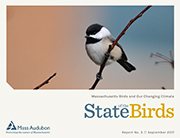Lawrence Peregrines: feeding time for 3 chicks!
May 9, 2019 in In the Nest Box, lawrence peregrines, Peregrine Falcons Eastern Massachusetts, Peregrine Falcons Massachusetts
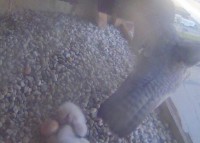 The morning started off under clear skies, calm wind conditions, and cool at 37F just after 6AM. The female lifted up and off the 3 chicks just before 6:15AM for brief flight and returned with breakfast for the three chicks. The fourth egg remains unhatched. This has happened in years gone by.
The morning started off under clear skies, calm wind conditions, and cool at 37F just after 6AM. The female lifted up and off the 3 chicks just before 6:15AM for brief flight and returned with breakfast for the three chicks. The fourth egg remains unhatched. This has happened in years gone by.
Peregrine Falcon chicks are helpless. One parent (often the female but sometimes the male) stays with the chicks while the other finds food for the brood. Eyases eat an incredible amount of food – but then, they double their weight in only six days and at three weeks will be ten times birth size.
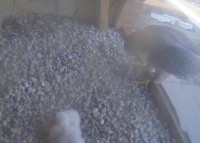 Newly hatched chicks are wet and covered with white down. But by three weeks of age, brownish juvenile feathers can be seen poking through the white fuzz. By five or six weeks of age, the white fuzz has been completely replaced by brown feathers. The eyases can be observed jumping around and testing their wings, getting ready to fly.
Newly hatched chicks are wet and covered with white down. But by three weeks of age, brownish juvenile feathers can be seen poking through the white fuzz. By five or six weeks of age, the white fuzz has been completely replaced by brown feathers. The eyases can be observed jumping around and testing their wings, getting ready to fly.
